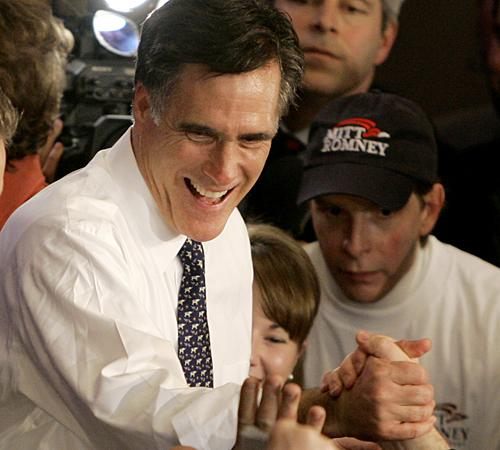Clinton, Romney win in Michigan
Jan 17, 2008
Last updated on May 12, 2016 at 08:05 p.m.
Sen. Hillary Clinton and former Massachusetts Gov. Mitt Romney handily won their party’s primary in Michigan Tuesday night.
While Romney’s campaign is breathing a sigh of relief over their much needed victory in the Republican primary, the biggest story on the Democratic side is the high number of “undecided votes,” which some suggest were cast against Clinton.
Though Sen. Clinton won over half of the Democratic vote, 40 percent of Democratic primary goers voted undecided.
Neither Sen. Barack Obama nor former Sen. John Edwards was on the Michigan Democratic ballot.
Get The Daily Illini in your inbox!
This was due to the National Democratic Convention ruling that Michigan’s primary was illegal because it was held before the upcoming primaries on Super Tuesday.
National Democratic Convention rules allow only Iowa, New Hampshire, Nevada and South Carolina to hold early primaries.
Michigan state Rep. Virgil Smith, D-Detroit, said there was a major initiative by Edwards and Obama supporters to sway voters to cast “undecided” ballots.
Smith said the high number of undecided votes should quell any enthusiasm the Clinton campaign has over her lightly contested 55 percent victory.
“If I was Hillary Clinton I would like to see (her margin of victory) more around seventy percent with not too many opponents on the ballot that are the front runners like John Edwards or Barack Obama,” Smith said.
“If she (only won) with that number coming in as uncommitted that would be alarming to me.”
The Republican primary was relatively more competitive. Romney won with 39 percent of the vote. Michigan’s 2000 primary winner, John McCain, finished second with 30 percent of the vote.
Michigan state Rep. Neal Nitz, D-Baroda, said Romney ran a strong campaign and believes he spoke to the core of Republican voters’ concerns.
“He was the only candidate that was really speaking on the economy,” Nitz said. “And Michigan’s economy, the way we are compared to the rest of the nation, we felt that the economy is very important to be one of the key factors in the decision making of who the next president will be.”
Michigan State Rep. David Robertson, R-Grand Blanc, echoed Nitz’s analysis and said Romney’s victory will challenge Republican candidates to propose solutions to America’s fiscal problems.
“He focused his attention on economic issues and he made a personal commitment to Michigan in terms of helping Michigan’s economy, helping the auto industry and so on,” Robertson said. “I believe it will focus issues in the presidential race from this point forward on economic questions as well as other issues.”
Romney’s late father, George Romney, was governor of Michigan from 1963 to 1969. In addition to his family ties to the state, Romney spent close to 2 million dollars in television ads leading up to the primary.
Unlike the Republican candidates, Sen. Clinton has spent little time campaigning in Michigan. Instead, she is devoting her time and resources to other primary states including Nevada and South Carolina.
Smith said that his constituents were more disappointed by Obama’s absence on Michigan’s democratic ballot than excited about Clinton’s victory.
“A lot of folks wanted to vote for Barack Obama. I think that was a bad strategic move on the Obama campaign not to be on the ballot here,” Smith said. “Especially with a city that has over an eighty percent African-American base.”
Smith also said that his constituents may have felt cheated out of an opportunity to do what other primary states have and will do.
“It’s not every day that we get to vote for an African-American candidate running for President,” he said.






